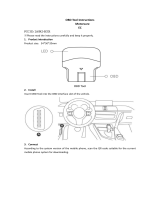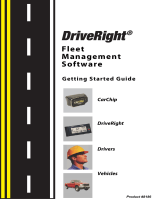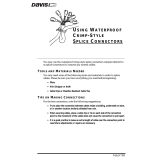
FCC Part 15 Class B Registration Warning
This equipment has been tested and found to comply with the limits for a Class B digital device, pursuant to Part 15 of the
FCC Rules. These limits are designed to provide reasonable protection against harmful interference in a residential instal-
lation. This equipment generates, uses, and can radiate radio frequency energy and, if not installed and used in accor-
dance with the instructions, may cause harmful interference to radio communications.
However, there is no guarantee that interference will not occur in a particular installation. If this equipment does cause
harmful interference to radio or television reception, which can be determined by turning the equipment on and off, the
user is encouraged to try to correct the interference by one or more of the following measures:
• Reorient or relocate the receiving antenna.
• Increase the separation between the equipment and receiver.
• Connect the equipment into an outlet on a circuit different from that to which the receiver is connected.
• Consult the dealer or an experienced radio/TV technician for help.
Changes or modification not expressly approved in writing by Davis Instruments may void the warranty and void the
user's authority to operate this equipment.
© Davis Instruments Corp. 2007. All rights reserved.
DriveRight OBDII Installation Guide
Rev. D (February 15, 2007)
Product # 8126OBD
Document Part Number: 07395.198
This product complies with the essen-
tial protection requirements of the EC
EMC Directive 89/336/EC.
EMC Directive 95/54/EC (Emark)
DriveRight is a registered trademark of Davis Instruments Corp., Hayward, CA.
Velcro is a trademark of Velcro Industries, Manchester, NH.
Information in this document subject to change without notice.
Tested to comply
with FCC standards
FOR HOME OR OFFICE USE

























